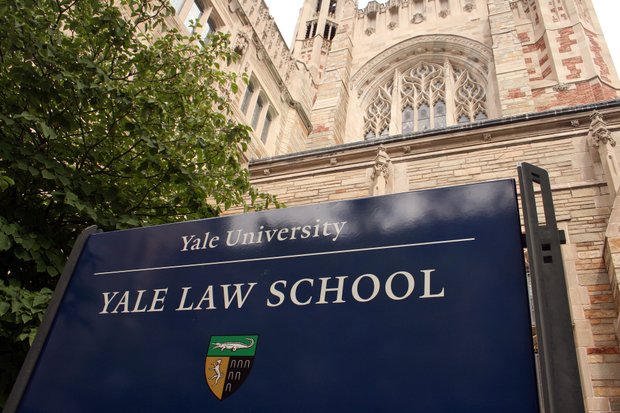
Yale Law
Federal Judges are Boycotting Yale Law: Here’s Why
12 federal judges are boycotting Yale Law School grads for clerkships.
U.S. Circuit Judge James Ho called for the boycott in a speech to a Federalist Society Conference in Kentucky on Sep. 29, citing concerns about free speech. Ho, who was appointed by former President Donald Trump, said he would no longer hire clerks from Yale Law, saying that the law school tolerates “cancel culture.”
“Yale not only tolerates the cancellation of views — it actively practices it,” Ho said, according to prepared remarks exclusively obtained by National Review. “Starting today, I will no longer hire law clerks from Yale Law School. And I hope that other judges will join me as well.”
In his address to the Federalist Society, Ho, cited a number of examples of speakers being censored or “canceled” at law schools across the country, but he singled out Yale Law as “one particular law school where cancellations and disruptions seem to occur with special frequency.”
“I don’t want to cancel Yale,” Ho tells Reuters. “I want Yale to stop cancelling people like me.”
YALE LAW DEAN DEFENDS FREE SPEECH
According to employment lists obtained by Yale Daily News, no Yale Law graduates from 2019 to 2022 reported first clerkships with Ho. The most recent Yale Law grad hired by Ho graduated in 2017.
Some Yale Law students say the boycott is ironic.
“I find it funny — and counterintuitive if his ends actually are conservative — that a conservative judge would deny clerkship opportunities to conservative Yale Law students … as a means of punishing the school,” Aggrey Odera, a Class of 2023 Yale Law student, tells Yale Daily News.
In response to the incident, Dean of Yale Law School, Heather Gerken, defended free speech and emphasized a desire to create an inclusive environment for all students.
“The vigorous exchange of ideas is the lifeblood of this Law School,” Gerken says. “Protecting free speech is a core value of any academic institution; so too is cultivating an environment of respect and inclusion. These two values are mutually reinforcing and sit at the heart of an intellectual community like ours.”
Sources: National Review, The Washington Free Beacon, Yale Daily News, Reuters

Questions about this article? Email us or leave a comment below.